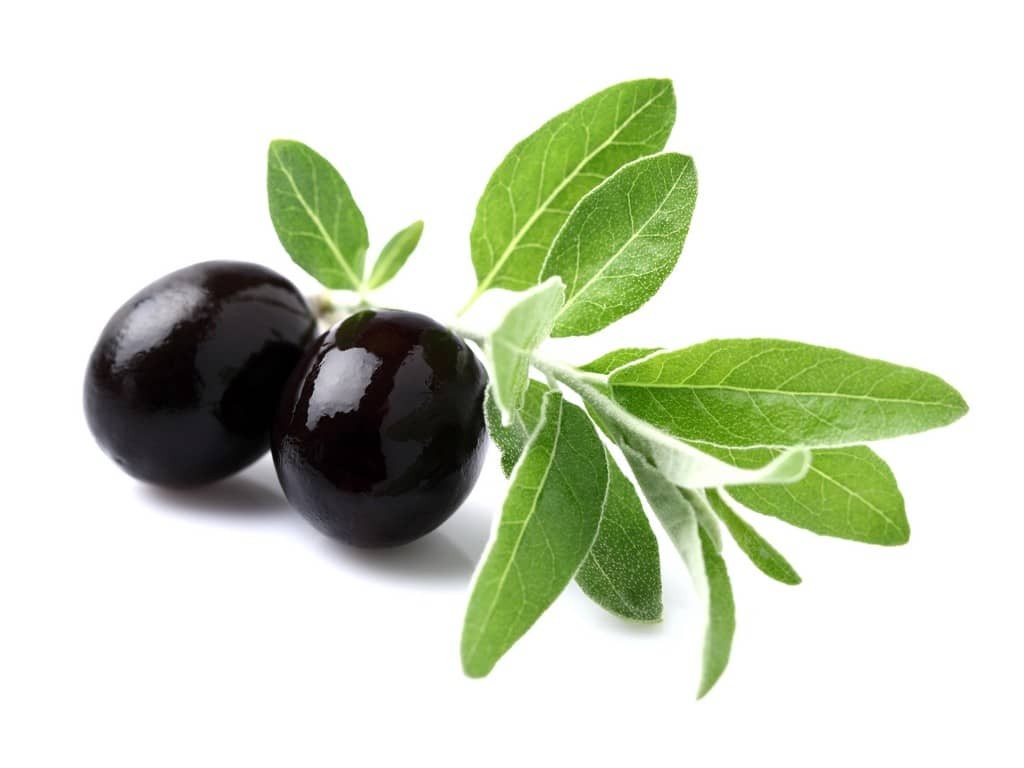
The Olive (Olea europaea) is a species of a modest evergreen tree in the family Oleaceae. The olive tree produces an oval shape fruit with a single seed inside. The silvery green leaves are oblong in shape, measuring 4-10 cm long and 1-3 cm wide. While olive oil is well known for its flavor and health benefits, the leaf has been used medicinally in various times and places. Sunfull's olive leaf extract is purified from the leaves of the olive tree. The Olive Leaf Extract's active ingredient is oleuropein. Oleuropein and its metabolite hydroxytyrosol have been claimed to have numerous healthy prosperities. Oleuropein imparts some important antioxidant benefits to the user. Hydroxytyrosol (3,4-dihydroxyphenylethanol) is a physiochemical with antioxidant properties. After gallic acid, hydroxytyrosol is believed to be one of the most powerful antioxidants. Its oxygen radical absorbance capacity is 40,000 μmol TE/g, which is 2 times higher than that of CoQ10. Olive leaf extracts is now marketed as anti-aging, blood pressure lowering, immune stimulators, and even antibiotics. It can be enjoyed regularly as a preventative or used directly to combat ailments.
The Main Extracts of Olive Leaves and Their Functions
1. Oleuropein
Antioxidant Effect:
Oleuropein is a strong antioxidant. It can effectively eliminate free radicals in the body, such as superoxide anion free radicals and hydroxyl free radicals. These free radicals can trigger oxidative stress reactions, leading to cell damage, aging, and the occurrence of various diseases. For example, in cell experiments, oleuropein can prevent lipid peroxidation of cell membranes and maintain the integrity of cells.
Cardiovascular Protection:
It helps lower blood pressure. By regulating the function of vascular endothelial cells, it promotes the release of nitric oxide (NO). NO can relax vascular smooth muscle, thereby dilating blood vessels and reducing peripheral vascular resistance to achieve the effect of lowering blood pressure.
It also has a positive impact on blood lipids. Oleuropein can reduce the level of low - density lipoprotein cholesterol (LDL - C) in the blood, reducing the risk of atherosclerosis. At the same time, it can also inhibit platelet aggregation and prevent thrombosis.
Antibacterial and Anti - inflammatory Effects:
Oleuropein has inhibitory effects on various bacteria, fungi, and viruses. It can destroy the cell wall and cell membrane structure of bacteria and inhibit the growth and reproduction of bacteria. It has significant antibacterial activity against some common pathogenic bacteria such as Staphylococcus aureus and Escherichia coli.
In terms of inflammatory reactions, oleuropein can inhibit the release of inflammatory factors such as interleukin - 1β (IL - 1β) and tumor necrosis factor - α (TNF - α), reducing the damage of inflammatory reactions to tissues.
2. Hydroxytyrosol
Stronger Antioxidant Activity:
The antioxidant ability of hydroxytyrosol is relatively prominent in olive leaf extracts. It can capture free radicals and prevent the occurrence of free radical chain reactions. Its antioxidant effect is even higher than that of common antioxidants such as vitamin C and vitamin E, and can effectively protect intracellular biomolecules from oxidative damage.
Benefits for Cardiovascular System:
It can improve vascular endothelial function. By activating endothelial nitric oxide synthase (eNOS), it increases the synthesis of NO, dilates blood vessels, and lowers blood pressure.
In terms of reducing blood lipids, hydroxytyrosol can reduce the content of triglycerides and cholesterol in the blood and reduce the deposition of lipids on the blood vessel wall.
Neuroprotective Effect:
Hydroxytyrosol can penetrate the blood - brain barrier and play a protective role in the central nervous system. It can reduce oxidative stress and neuroinflammation in the brain, prevent neurodegenerative diseases such as Alzheimer's disease and Parkinson's disease. In animal models, hydroxytyrosol can improve cognitive function and memory ability.
3. Oleanolic Acid
Anti - inflammatory Effect:
Oleanolic acid can inhibit key enzymes in the inflammatory reaction process, such as cyclooxygenase - 2 (COX - 2) and lipoxygenase (LOX), thereby reducing the production of inflammatory mediators such as prostaglandin E2 (PGE2) and leukotrienes. This is helpful for alleviating inflammation - related diseases such as arthritis and enteritis.
Hepatoprotective Effect:
It has a protective effect on the liver. It can reduce the damage of chemical substances (such as carbon tetrachloride, alcohol, etc.) to the liver and promote the regeneration of liver cells. By regulating the metabolic and detoxification functions of the liver, it reduces the levels of liver enzymes (such as alanine aminotransferase and aspartate aminotransferase) and maintains the normal physiological function of the liver.
Immunomodulatory Function:
Oleanolic acid can regulate the immune function of the body. It can enhance the phagocytic ability of macrophages, promote the proliferation and differentiation of lymphocytes, improve the body's immunity, and enhance the resistance to pathogens. At the same time, it can also regulate immune balance and prevent excessive immune responses.







